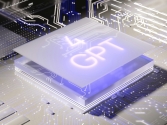Unlocking the promises of a Smart City
By Andrew TanMost probably, you have heard the terms "smart city" or "future city", which generally refers to urban centres that rely on technology to improve the lives of citizens. Many of us already live in smart cities without even realising it. Singapore itself is a prime example, with its Smart Nation transformation well underway since 2014, Singapore is leveraging sensors, the Internet of Things and data analytics to tackle a diverse range of problems, from traffic congestion to healthcare.
How does it work?
The fundamental aspect of a smart city is not the number of sensors or devices it contains, but rather the use of technology that enables city planners and other government bodies to reduce the stress on a city’s infrastructure and unlock a better standard of living for its citizens.
Be it an automated management system, digital government services, digital sourcing of information, mobile apps or the possibility of connecting with government officials via social media platforms, in smart cities citizens leverage technology to improve everyday processes.
The city functions as a self-servicing organism that uses data to constantly improve itself.
For instance, in Singapore, the digitalisation of the municipal governance system started as early as in the 1980s when the National IT Plan was drafted. Today, Singapore is an example of a model smart city, with more than 80% of its residents making use public services online, drastically reducing queues at public offices and improving workflow.
Smart city technologies
Changes in city governance would have been impossible without the key shifts in Information and Communication Technology over the past 20 years. The implementation and adoption of advanced technologies are another differentiating factor of a smart city.
Technically speaking, a smart city is an urban telematic network enabling access to a single knowledge base updated in real time, containing information on city services activities, status of infrastructure and distribution of electric power streams.
Indeed, an appropriate software like a robust IoT platform is required here as a basis for enabling collection, integration and management of all the huge amount of data to be always-on as well get useful knowledge and use them according to particular city’s needs.
Such a centralised platform-based approach helps to control, optimise and improve resource management, as well as preventing potential negative issues whilst leveraging intelligent technologies such as machine learning and artificial intelligence.
These capabilities within the city processes range from traffic congestion management to environmental monitoring, providing authorities and other stakeholders an overview of pressure points within the city. Through monitoring and analysing any issues, they can make timely and data-driven decisions in both their responses and planning.
For example, IoT platforms can collate weather data to affect the operational mode of heat distribution networks, based on the data, a water pipeline incident would then adjust the city transit operation to compensate. From an economic standpoint, this helps significantly reduce operational costs whilstalso improving citizens livelihoods.
Another aspect of this is predictive analytics. The real-time analysis of the data fathered by IoT devices allows not only the optimisation of operations, but also the prevention of equipment failure by proactively monitoring their health and making the necessary repairs before failure occurs.
Already today, smart software is working in utility and transport systems of many cities, presenting the high value of horizontal standardised IoT platforms that can integrate and properly process the IoT data from all the software to the city’s advantage.
Why make the effort?
A Smart Nation has the ability to engage multiple industries and stakeholders to drive people-centric innovation and efficiency across the country, and in areas spanning from urban development to healthcare, education, energy, security and public services.
It is able to develop capabilities that address today’s complex challenges, such as attending to diverse needs of different communities, delivering efficient public services, and maintaining high living standards.
Regardless of the form a Smart Nation would eventually take, its aspiration will always be to create a society that is more resilient, nimble and adaptable to change. On this aspect alone, the economic payback, social capital and political mileage will be tremendous.
Suppliers reap the main benefit of improving payment discipline, prevention of non-payments and controlling resource thefts. For residents, this is a simple and convenient way to pay invoices, check current utility consumption indicators, and a possibility to reduce costs by optimising consumption. Automatic smart meter management can help decrease consumption. For example, it is possible to schedule the needed temperature level inside the apartment and switch on lighting with movement or heat sensors, and dim lighting during the night.
Smart systems for a better, inclusive society
In Singapore’s emerging new townships, we see the application of smart urban design. Homes will have sensors in them, such that it can detect falls and other accidents within the home. For the elderly who live alone, the carpet will immediately inform a doctor and alert emergency services to render aid.
The districts will be designed in such a way that the elderly are completely integrated into the vibrancy of everyday city life. They have smart doors that do not require complex passcodes, smart devices that can contact emergency services at any time of day without human intervention and smart dispensers that eject the right dosages of medicine at the appropriate times whilst sending out a reminder to those with failing memory.
Another option is smart traffic management. Analysts estimate that more than 25% of jams are ad hoc and caused by arising road issues. The proper IoT solution will help remove this gap and improve overall efficiency.
Road service specialists control the general situation on a map with coloured indicators and video from various cameras. In case there are any road incidents, they can immediately notify relevant services: police, fire brigade, ambulance, gas service, water supply and electric grid specialists. If necessary, traffic light modes are adjusted. Reports on road issues drilled down to time of day, weekdays and locations help define spots with regular problems and develop plans to address them.
Smart City – happy people
When interconnected people, information and things are truly ubiquitous, and technology becomes fully embedded as an integral part of all government, commercial and social activities, such that every process works every time and people can enjoy a happier, fulfilling daily life. This increases the degree of people's trust in their government, their sense of safety and security, whilst instilling ownership of all urban environment stakeholders.

























 Advertise
Advertise










